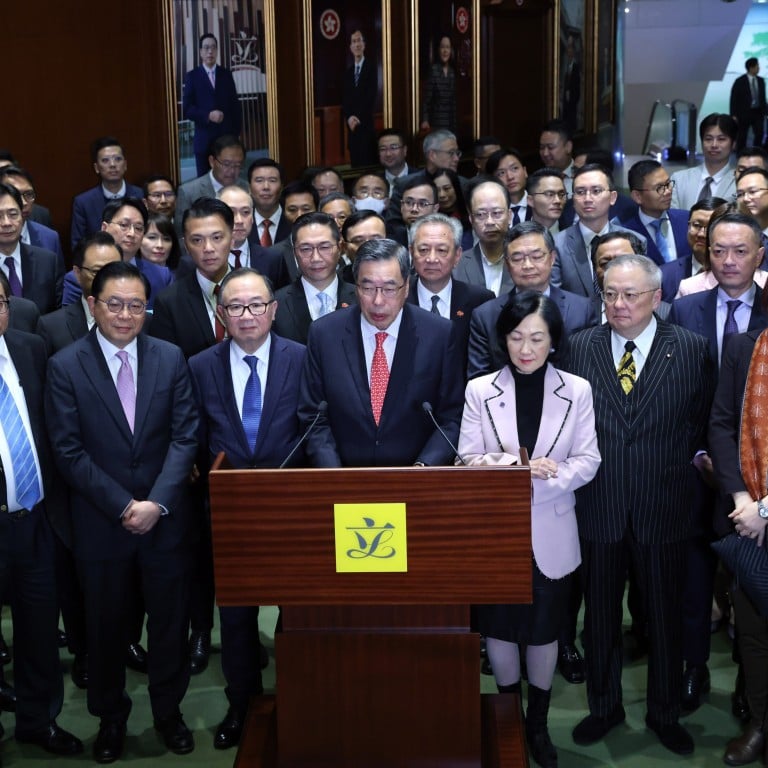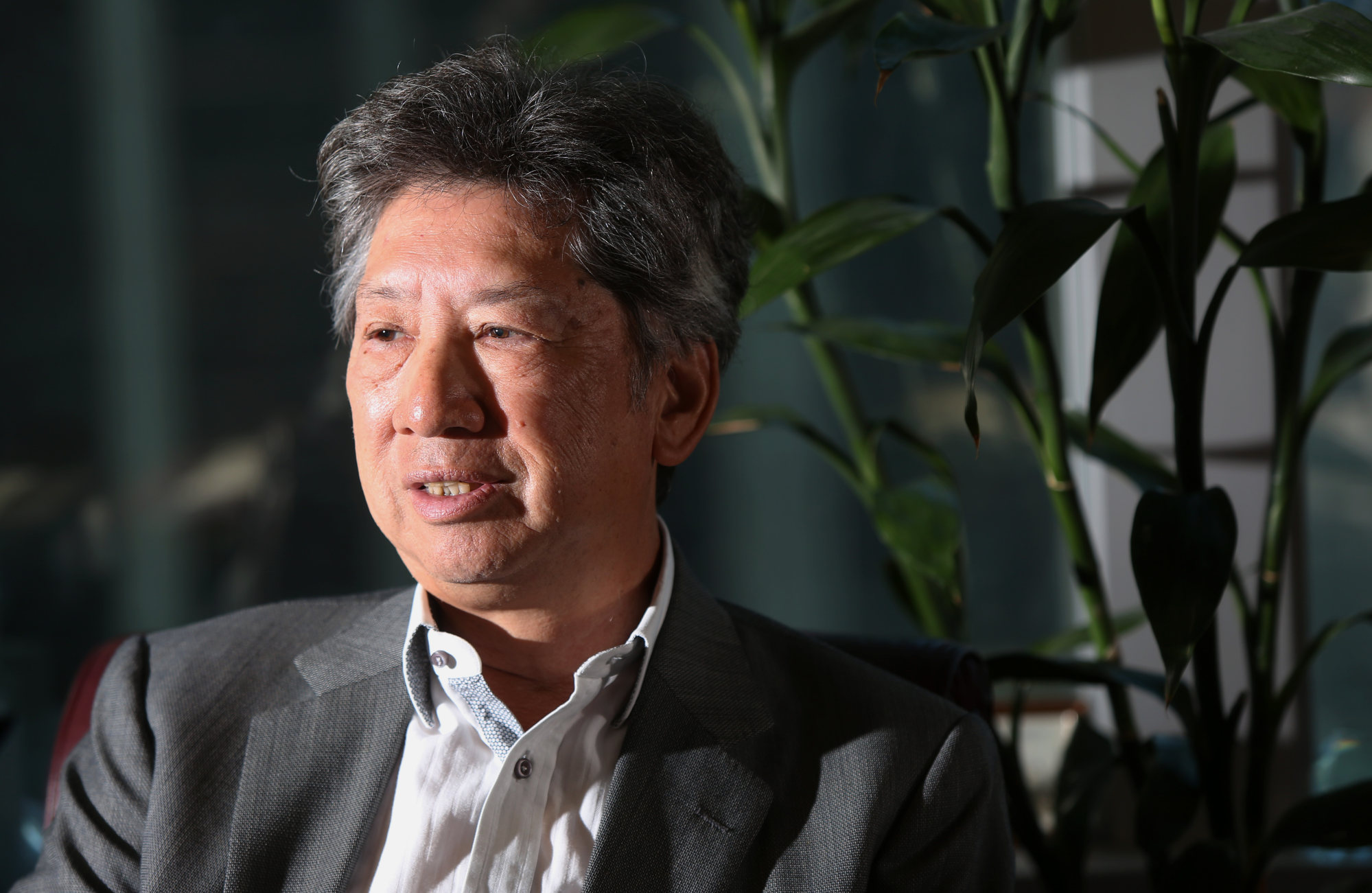
Hong Kong must be ready to ‘bite the bullet’ and take potshots after passing of Article 23 bill in its stride and assuage worries: analysts
- Experts say government must ‘redouble’ efforts to tackle worries raised by overseas community to preserve city’s position as international hub
- Exco member Ronny Tong, also a barrister, says he hopes law will never be used to prove its deterrent effect had preserved social stability
They appealed to the government to redouble efforts to tackle concerns about the Article 23 legislation, particularly worries raised by the overseas community, who could find themselves entangled in the national security web, to minimise any unintended effects and help maintain the city’s status as an international hub.
Ronny Tong Ka-wah, a barrister and a member of the Executive Council, the government’s key decision-making body, said he hoped the new law “would never be tested in court”, like similar legislation in Macau enacted in 2009.
Tong explained that would show that the legislation’s deterrent effect had contributed to social stability.
“Once prosecutions are initiated, there is no way to win,” he said. “Hong Kong will face criticism regardless of whether a suspect is found guilty or not.”

Tong added possible punitive measures by the United States and its allies against Hong Kong’s economic development were “unavoidable”.
“Hong Kong must bite the bullet and confront these challenges head-on,” he said. “The proof of the pudding is in the eating.
“All sides need time to digest that Hong Kong’s ‘one country, two systems’ [governing principle] operates well.”
All eyes are now on how Hong Kong can chart its course of economic development and navigate around any potential backlash after the city fulfilled an obligation under the Basic Law, the city’s mini-constitution, that was shelved by mass protests more than two decades ago.
American politicians have proposed a string of measures, including a revaluation of business and travel advisories for the city, the imposition of sanctions on more individuals and the removal of diplomatic privileges from the Hong Kong economic trade offices in the US.
A property developer, who asked not to be named, said what worried some was that Hong Kong’s credit ratings would risk being downgraded and participation in international organisations might be jeopardised if Western powers cast the law as a further diminishing of the city’s autonomy under one country, two systems.
Lau Siu-kai, a consultant to the semi-official Chinese Association of Hong Kong and Macau Studies think tank, said he expected repercussions and smear campaigns.
But like other analysts, he predicted they would likely be “less damaging” than those seen four years ago after Beijing imposed a security law on the city.
“The [Beijing-imposed law] – which drew bigger surprises and carried heavier penalties than Article 23 – resulted in sanctions on officials,” Lau said. “I don’t foresee the coming US repercussions surpassing that severity.”
Lau maintained another piece of national security legislation to complement the 2020 law would not undermine the city’s international collaborations.
He said businesses had already “digested” the city authorities’ emphasis on national security.
As it happened: Hong Kong legislators make history, pass Article 23 security bill
Lau added as long as their interests aligned with the mainland Chinese market, they were likely to remain rooted in the city. Other analysts agreed and said the Beijing-imposed law had “baked in” the idea of the need for national security.
But he advised the government to do more to fight smear campaigns and quash any misunderstandings in the international community to ensure that Hong Kong remained attractive to investors.
Asked by the Post about possible sanctions from the West or a downgraded travel advisory for the city, lawmaker Martin Liao Cheung-kong, the chairman of the bills committee, said the city would cope with any problems.
“Whatever will come will come,” he added. “This is not my consideration.”
Legco president Andrew Leung Kwan-yuen pointed out that other countries did everything they could to protect national security.
“Why can’t we? Be it downgrade, be it whatever, we don’t mind,” he said.
The Safeguarding National Security Ordinance covers 39 offences divided into five categories: treason; insurrection, incitement to mutiny and disaffection, and acts with seditious intention; sabotage; external interference; and theft of state secrets and espionage.
Offenders can be jailed for life for committing four crimes covering treason, insurrection, collusion with external forces to damage public infrastructure and inciting members of the Chinese armed forces to mutiny.
Professor Simon Young Ngai-man, associate law dean at the University of Hong Kong, said the new law would have little relevance to most Hongkongers’ daily lives.
But he identified four categories of individuals who were more likely to be affected when the law took effect.
They were public officers, government contractors, people already on the radar of the national security authorities and those who had regular dealings with external forces, Young said. He added the last broad category encompassed companies, academics and journalists.
What are some of the key legal flashpoints under Hong Kong’s Article 23 law?
Those prepared to cooperate with outside elements to “advocate for legal changes in Hong Kong or are simply critical of the Hong Kong or central governments” should beware of the law, he said.
But during the Legco debate, officials repeatedly stressed the offences, which would look at intent and actual action, would target only acts that endangered national security and no one would “unwittingly” commit a crime under the legislation.
A Hong Kong and Macau Affairs Office statement after the bill was passed also maintained the legislation did not target normal commercial transactions and international exchanges, or even general commercial or criminal cases.
“The legislation fully considers the need for Hong Kong to operate as an international financial, shipping and trade centre,” the office said.
Chong Ja Ian, an associate professor of political science at the National University of Singapore, was among analysts who remained sceptical.
He said that if the political risks now mirrored those of the mainland, some foreign firms eyeing the Chinese market might opt to relocate there, sidestepping the higher business costs associated with Hong Kong.
Josef Gregory Mahoney, international relations professor at East China Normal University in Shanghai, said China-US tensions and this year’s American presidential election might complicate the landscape.
“Biden has a long-term strategy of diminishing Hong Kong given his broader anti-China agenda,” Mahoney added.
“We might also expect it to be used to justify new anti-China policies already in the pipeline and that are coming regardless.”


